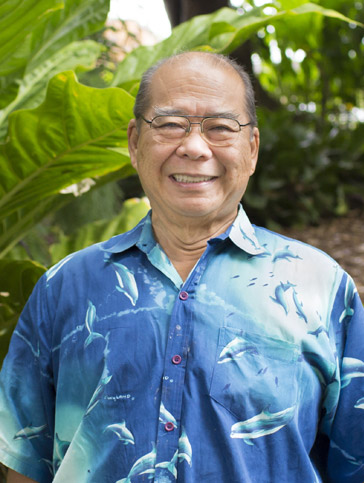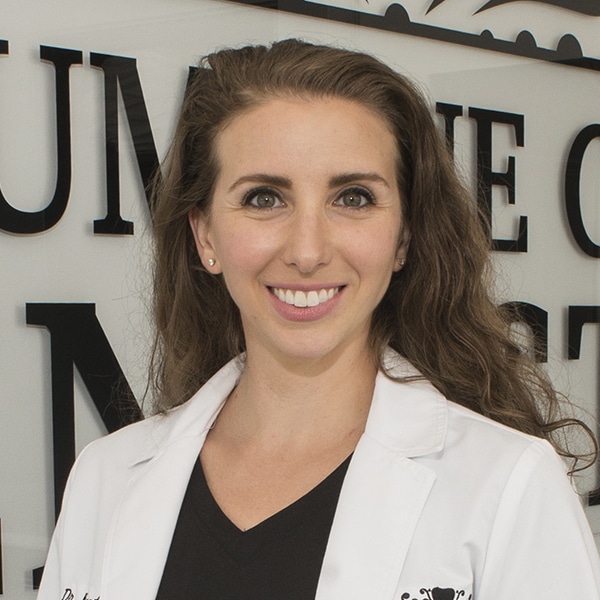
These degrees DDS (Doctor of Dental Surgery There are a number of professional degrees in dentistry offered by dental schools in various countries around the world.Dental degree
What was the first dental school to award the DMD degree?
Harvard University was the first dental school to award the DMD degree. Harvard only grants degrees in Latin, and the Latin translation of Doctor of Dental Surgery, "Chirurgiae Dentium Doctoris", did not share the "DDS" initials of the English term.
What are the most common dental degree and Accreditation acronyms?
Below is a short guide to the most common dental degree and accreditation acronyms. These abbreviations can often be found listed after a dentist’s name. Here is what they tell you about your dentist. These degrees DDS (Doctor of Dental Surgery) and DMD (Doctor of Dental Medicine) are awarded upon graduation from dental school.
How many types of degrees are there in dentistry?
There are a number of post-graduate degrees in dentistry as well. There are the number of degrees in dentistry recognised In Australia and New Zealand - Bachelor of Dental Surgery - Bachelor of Dental Science - Doctor of Dental Medicine - Doctor of Dental Surgery - Doctor of Dental Science - Master of Dentistry (only Griffith University)
How many years does it take to become a dentist?
the training required for a dental degree in the US includes an undergraduate degree and four years of dental education practice options available to a dentist include private practice, teaching, partnership a general dentist may legally perform all dental and specialty functions true or false

What degree is awarded when a dentist graduates?
Some universities may grant dental graduates with a DDS, and others grant a DMD, but both degrees have the same requirements. According to the ADA, the Baltimore College of Dental Surgery established the first Doctor of Dental Surgery degrees in 1840.
What is the degree awarded when a dentist graduates from a dental university in the United States?
They both mean the same thing—your dentist graduated from an accredited dental school. The DDS (Doctor of Dental Surgery) and DMD (Doctor of Medicine in Dentistry or Doctor of Dental Medicine) are the same degrees. Dentists who have a DMD or DDS have the same education.
What does DDS MS mean?
The combined Doctor of Dental Medicine and Master of Science in Dental Research (DMD/MS) will allow a select group of DMD candidates the opportunity to enroll in TUSDM's Master of Science in Dental Research program, earning both degrees in five years.
What is the highest degree for a dentist?
A doctorate in dentistry is the highest general dental degree in the U.S. Dentistry schools award either a doctor of medicine in dentistry (DMD) or a doctor of dental surgery (DDS) to graduates.
What does BDS Hons mean?
Bachelor of Dental Surgery (BDS) Single honours Joint.
Is dentistry a doctorate degree?
The DDS (Doctor of Dental Surgery) and DMD (Doctor of Dental Medicine) are the same degrees. They are awarded upon graduation from dental school to become a general dentist. The majority of dental schools award the DDS degree; however, some award a DMD degree. The education and degrees are the same.
How do you write DDS after your name?
5. A dentist may use the prefix “Dr.” or “Doctor”, but shall add after the person's name the letters “D. D. S.”, or “D. M. D.”, or the word “dentist” or “dental surgeon”. A dental hygienist may use the words “registered dental hygienist” or the letters “R. D. H.” after the person's name.
What does pa stand for after dentist?
The abbreviation DDS stands for doctor of dental surgery, and PA refers to a professional association. DDS is the degree held by the dentist, and professional association is a legal term that allows a person to be treated as a business entity for tax purposes.
What does PC mean in dentist?
Professional CorporationA Professional Corporation (“P.C.”) is simply a corporation for professionals such as doctors, lawyers or dentists.
Is BDS a graduation degree?
BDS is the graduation programme to become a dental surgeon. The programme covers various aspects of dental problems, denture and surgery in the same fields. BDS or Bachelor of Dental Surgery is the most popular medical course after MBBS.
What are the levels of dentistry?
In general, there are seven types of dentists:General Dentist.Pedodontist or Pediatric Dentist.Orthodontist.Periodontist.Endodontist.Oral Pathologist or Oral Surgeon.Prosthodontist.
What can you do after a dental degree?
Jobs directly related to your degree include: Dental hygienist....Jobs where your degree would be useful include:Anatomical pathology technologist.Health improvement practitioner.Health service manager.Higher education lecturer.Medical sales representative.Primary school teacher.Science writer.Secondary school teacher.More items...
Which university was the first to award a DMD degree?
Harvard University was the first dental school to award the DMD degree. Harvard only grants degrees in Latin, and the Latin translation of Doctor of Dental Surgery, "Chirurgiae Dentium Doctoris", did not share the "DDS" initials of the English term.
How long is dental school?
Dental school is four academic years in duration and is similar in format to medical school: two years of basic medical and dental sciences, followed by two years of clinical training (with continued didactic coursework). Before graduating, every dental student must successfully complete the National Board Dental Examination Part I and II (commonly referred to as NBDE I & II). The NBDE Part I is usually taken at the end of the second year after the majority of the didactic courses have been completed. The NBDE Part I covers Gross Anatomy, biochemistry, physiology, microbiology, pathology, and dental anatomy and occlusion. The NBDE Part II is usually taken during winter of the last year of dental school and consists of operative dentistry, pharmacology, endodontics, periodontics, oral surgery, pain control, prosthodontics, orthodontics, pedodontics, oral pathology, and radiology. NBDE Part I scores are Pass/Fail since 2012.
How many years of schooling is required for dental surgery in India?
In India, training in dentistry is through a 5 -year BDS (Bachelor of Dental Surgery) course, which includes 4 years of study followed by one year of internship. As of 2019, there were 310 colleges (40 run by the government and 292 in the private sector) offering dental education. This amounts to an annual intake of 33500 graduates.
How many dental schools are there in New Zealand?
New Zealand has only one dental school: University of Otago, Dunedin. The Faculty of Dentistry awards Bachelor of Dental Surgery (BDS) and Master of Community Dentistry (MComDent) for public health & community dentistry, and Doctorate in Clinical Dentistry (DClinDent) for the other dental specialties.
What is the largest dental school in Africa?
degree. In 2004 the dental faculties of The University of the Western Cape and Stellenbosch University merged and moved to The University of the Western Cape, which is currently the largest dental school in Africa.
What is a RACDS?
Royal Australasian College of Dental Surgeons (RACDS) is a post-graduate body that focuses on post-graduate training of general practitioners and specialist dentists. Additional post-graduate qualifications can be obtained through the College after the candidate has completed the Primary Examination (basic science examination in Anatomy, Histology, Physiology, Biochemistry, Pathology and Microbiology) and the Final Examination (clinical subjects in dentistry). After the successful completion of the examinations and meeting the College requirements, the candidate is awarded the title of Fellow of Royal Australasian College of Dental Surgeons (FRACDS). For the dental specialists, the exam pathway is similar (Primary Examinations) and then clinical/oral examinations just prior to completing the specialist training leads to the award of the title Member of Royal Australasian College of Dental Surgeons in Special Field Stream (MRACDS (SFS)). For the busy GP dentists, MRACDS in general stream is also available.
What is a DMD?
This is how the DMD, or "Doctor Medicinae Dentariae" degree, was started. (The genitive inflection -is on "Doctoris" instead of the nominative "Doctor" simply reflects that the syntax on the diploma was "the degree of Doctor of Dental Medicine"; they are both correct.)
How many credits do you need to be a member of the Academy of General Dentistry?
A “fellow” in the Academy of General Dentistry (FAGD) has completed a minimum of 500 continuing dental education credit hours, passed a comprehensive exam and has been a member of the AGD for at least three continuous years.
What is a DMD?
General Dentist, DDS and DMD. These degrees DDS (Doctor of Dental Surgery) and DMD (Doctor of Dental Medicine) are awarded upon graduation from dental school. While the DDS degree is more common, the education received by a DMD is the same.
Which dental specialty involves the diagnosis, treatment and prevention of malocclusion?
the dental specialty that involves the diagnosis, treatment and prevention of malocclusion is. orthodontics. which dental specialty became the first new dental specialty in 36 years when it was granted recognition by the ADA in 1999. oral and maxillofacial radiology.
Which dental specialty is concerned with the restoration and replacement of natural teeth and tissues?
the dental specialty that is concerned with the restoration and replacement of natural teeth and tissues is. prosthodontics. the dental specialty that uses new and sophisticated imaging techniques to locate and diagnose dieases of the jaw head and neck is. oral and maxillofacial radiology. pediatric dentistry does not treat.
What is a dental specialty?
the dental specialty that involves the diagnosis and surgical treament of dieases, injuries, and defects in the oral and maxillofacial regions is. oral and maxillofacial surgery. the dental specialty that involves the diagnosis, treatment and prevention of malocclusion is. orthodontics.

Overview
United States
In the United States, at least three years of undergraduate education are required in order to be admitted to a dental school; however, most dental schools require at least a bachelor's degree. There is no mandatory course of study as an undergraduate other than completing the requisite "pre-dental" courses, which generally includes one year of general biology, chemistry, organic chemistry, physics, English, and higher-level mathematics such as statistics and calculus. Some d…
Degrees
Degrees acknowledged worldwide across North America, Europe, Africa, and Asia are:
• Doctor of Dental Surgery (DDS)
• Doctor of Dental Medicine (DMD)
• Doctor of Dentistry (DDent)
• Bachelor of Dental Surgery (BDS)
Dental specialties in the United States
There are 12 recognized dental specialties in the United States. To become a specialist requires one to train in a residency or advanced graduate training program. Once residency is completed, the doctor is granted a certificate of specialty training. Many specialty programs have optional or required advanced degrees such as a master's degree: (MS, MSc, MDS, MSD, MDSc, MMSc, MPhil, or MDent), doctoral degree: (DClinDent, DChDent, DMSc, PhD), or medical degree: (MD/MBBS sp…
Oceania
Australia has nine dental schools:
• University of Sydney NSW
• Charles Sturt University, NSW*
• Griffith University, QLD*
• University of Queensland, QLD
Bangladesh
The graduation in Dentistry is named here as Bachelor of Dental Surgery (BDS) also have diploma in Dentistry. At present there are three universities that have medical faculty that offer dental degree: The University of Dhaka, The University of Chittagong , the University of Rajshahi & diploma also state medical faculty. These public universities have dental colleges and hospitals that may be publicly or privately funded, that offer education for the degree. The list of dentals sc…
Canada
There are ten approved dental schools in Canada:
• University of Toronto (1868) [D.D.S.]
• McGill University (1905) [D.M.D.]
• Université de Montréal (1905) [D.M.D]
China
China has many universities teaching dental degrees both at undergraduate and postgraduate level. Chinese universities have adapted the programmes of American and European degrees. The under-graduate degree is Bachelor of Stomatology (口腔医学本科) or Bachelor of Dental Surgery (牙科學士), and the post graduate degree is Master of Stomatology (口腔医学硕士). There is variation a in the degrees such as BDS, DDS, DMD for bachelor level. Recently, China has new a n…